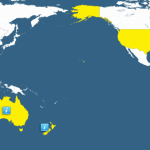There are increasing reports that the IP chapter of the Trans-Pacific Partnership Agreement is being perceived as a problem by some officials in that country. At a government briefing of media stakeholders yesterday, an official of the Department of Foreign Affairs and Trade (DFAT) in Canberra noted to one participant: ‘You’re lucky you’re in the Services chapter, . . .. the IP chapter is a real problem.’
The problematic nature of the chapter was also aired in a parlimanetary hearing. According to a transcript posted on Techdirt, Australian Senator Ludlam is asking similar questions of Australian negotiators as Chilean Parliamentarians are asking of theirs: since “Australia already has trade agreements with nearly all of the participating countries, . . . why [is] TPP even needed?”
The Senator continues:
Senator LUDLAM: . . . Very few members of the public have seen the text, so we are all in the dark. I am just wondering to what degree the minister has been brought into the loop. Perhaps DFAT could share the anticipated economic benefits, or the justification, for permitting provisions in the IP chapter of the agreement restricting parallel importations.
Mr McCormick : There is no agreement on that outcome. We are involved in a negotiation in which different parties have different objectives, and we are discussing those, but there is certainly no agreement.
Senator LUDLAM: The reason I am referring to that-and the only reason we know about that-is that there was a draft text that was leaked to the public last year that included language on rigid parallel importation restrictions. Is that missing from the versions we are negotiating now?
Mr McCormick : What I can say is that the text of the agreement is confidential between the parties. I know there are claims that there has been text released. We do not talk about claims of that, but certainly nothing is agreed until all the current nine-or more if we move to 10, 11 or12-members have agreed to it. Nothing has a status until it has been agreed at the end of the negotiations, so anything that people talk about is purely speculation.





